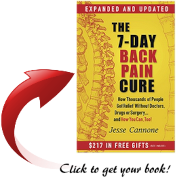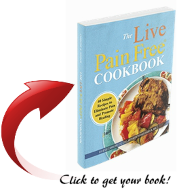To combat the effects of aging, you want to put into action things that make you feel and stay young and vibrant, both in body and mind. To help keep your body limber and avoid daily bouts of tightness and joint pain, take some time to stretch every day. If your body is flexible, staying mobile and more independent for years to come is not a pipe dream. As we age, it seems easier to ask others for help. And to preserve your sense of independence, see if you can do things for yourself. Such actions will keep you on your toes, give you a sense of pride and purpose, and help you stay strong.
Another item in your action plan as a senior might be deciding to live in an independent living community. If you are able to live independently in your own home and want the advantages of community living, then may be independent living is an option for you in the near future.
To help provide insight on that decision, I am honored to share a guest article written by Hazel Bridges. She is a resident of an independent living community, and having spent a year there, she really enjoys it! If you are struggling with the decision to move into independent living, Hazel can provide information on whether it’s the right move for you.

Image via Pexels
In the recent past, growing older wasn’t something that we looked forward to. Fortunately, technology, innovations in healthcare, and social initiatives have changed that. Today’s seniors have more options than ever before when it comes to taking charge of their lives. One of these is independent living. If you are considering making a move, keep reading for a few things to think about before you overhaul your entire existence.
Independent Living vs. Assisted Living
The differences between independent and assisted living are not always easy to spot. Both types of arrangements offer senior-friendly accommodations, community spaces, and healthy living services. Assisted living, however, goes a step further, giving seniors assistance with daily activities. This might mean receiving hands-on help in managing their medication or getting dressed in the morning. Modern Retirement asserts that assisted living is a solid choice for older adults who don’t need skilled nursing care but can’t live fully independently.
When to Make the Move
If you think you might be interested in independent living, there are a few key factors that should help sway your decision. One of these is when you are simply tired of owning your own home. As we get older, it gets a little bit harder each year to do things like mow the lawn, clean the gutters, and scrub the floors. Plus, we don’t often need three or four bedrooms and multiple living areas. So, think about your lifestyle; if it’s difficult to upkeep your current property or you have thousands of square feet you aren’t using, it may be time to downsize.
Something else to consider is your future health. Do you have a family history of diseases? Have you already noticed that driving is more of a challenge? When you have many “what-if” scenarios lingering in your head, you may find that you are more comfortable overall in a community environment that can provide support as your needs change. Many independent living centers also provide graduated care. This means you can move from independent to assisted living and then on to dementia or skilled nursing care if it ever becomes necessary.
Living alone is another sign that a move might make sense. Senior Safety Reviews explains that there are many reasons that living alone in your senior years might not be the best option. One of these is social isolation. While there is nothing wrong with enjoying your private time, too many days without human contact can lead to depression.
Are Retirement Communities Affordable?
When you move into a retirement community, you get more than just a roof over your head and a place to sleep. While amenities are different from one location to another, you can typically expect to get your housing as well as meals, housekeeping, laundry services, security, and even transportation. The best way to determine if this fits within your budget is to consider the cost of living alone, factoring in potential home modifications and caregiver services.
Other options
If you’ve weighed the pros and cons and just can’t see the benefits of independent living, you do have other options. Home-sharing is one of these, and according to Medicare.org, it can enhance your quality of life by reducing expenses, splitting the workload, providing social connections, and serving as a safety net in case of an emergency. Alternatively, depending on where you live, there might be a “village” community program available to you. This is essentially a network of people that can provide services and companionship when you need it.
As you can see, independent living is an exceptional choice for active seniors. However, it is not for everyone, and the best way to decide is to evaluate your situation and visit multiple locations. Most are happy to invite you to dinner so that you can chat with current residents to get a feel for whether or not you would be a good fit. No matter which living option you choose, keep in mind that you can always change your mind if your circumstances change.
<<<<<<<<<<<<<<<<<<<<>>>>>>>>>>>>>>>>>>>>
I would like to thank our guest author, Hazel Bridges, for offering advice in determining whether an independent living community is a good fit for you as you enter the latter stages of your golden years. Hazel is the creator of the website AgingWellness.org. If you need a resource for health and wellness information for aging seniors, then please visit her site. It has a ton of valuable content, well organized and provides a nice experience for the visitor. Hazel overcame breast cancer at age 60, and vowed to never waste another second. She challenges herself to live life to the fullest and wants to inspire others to do so as well.
Carpe Diem!



